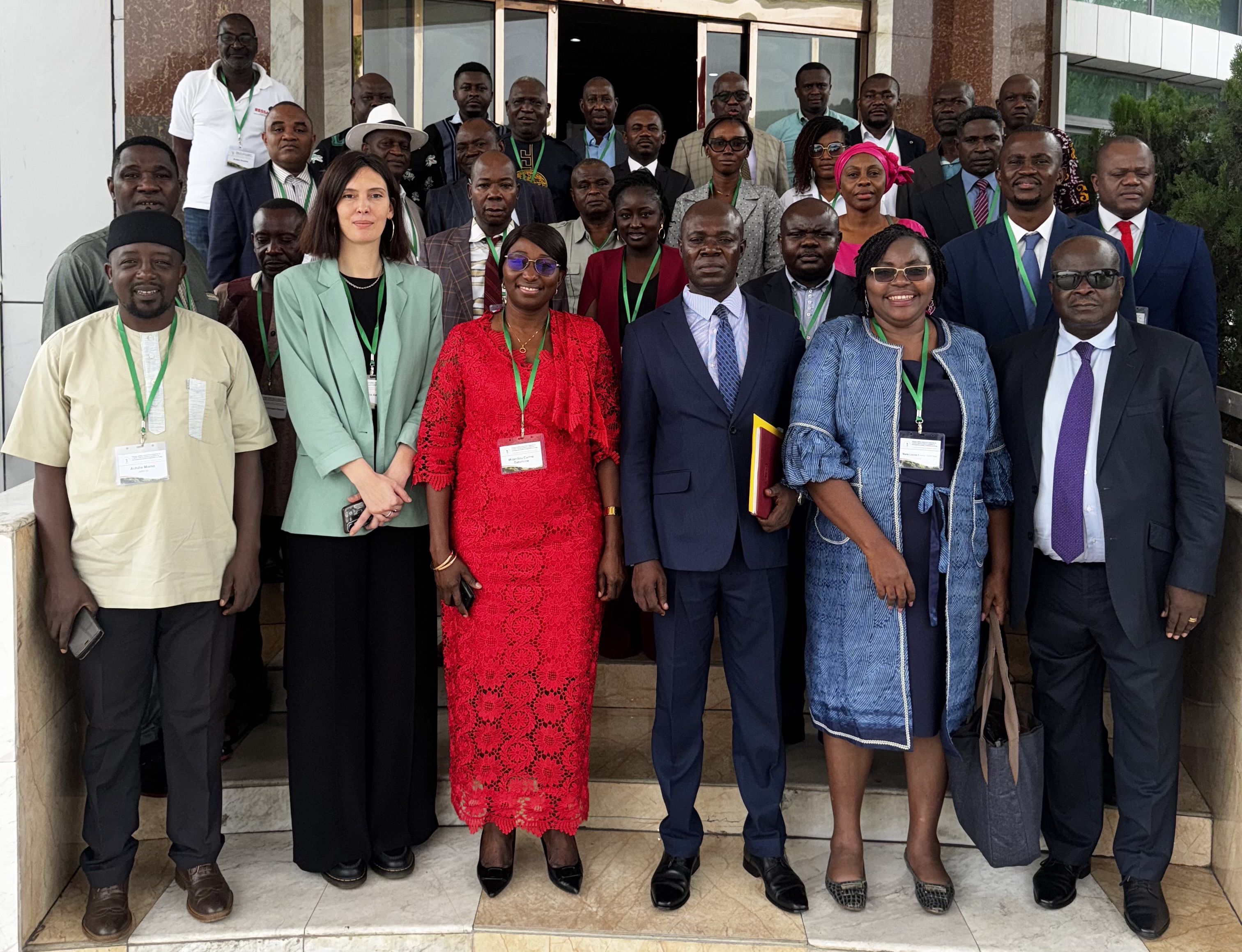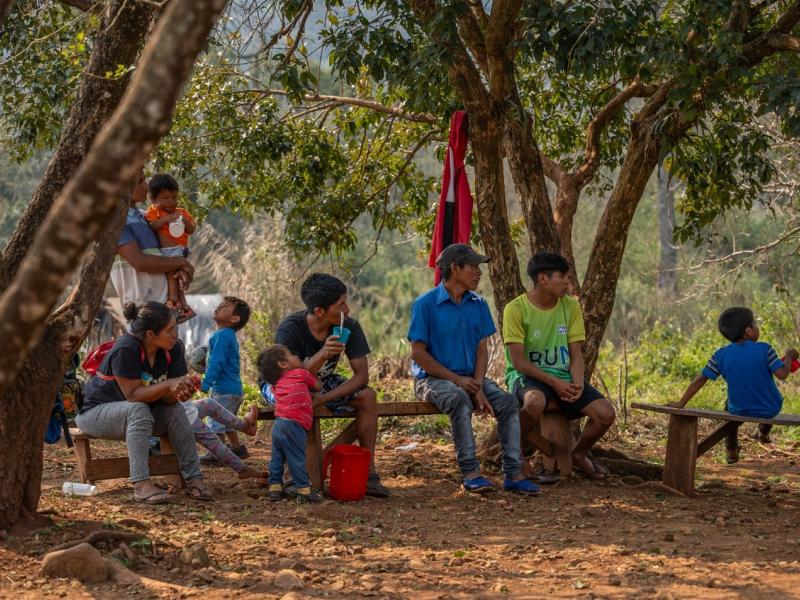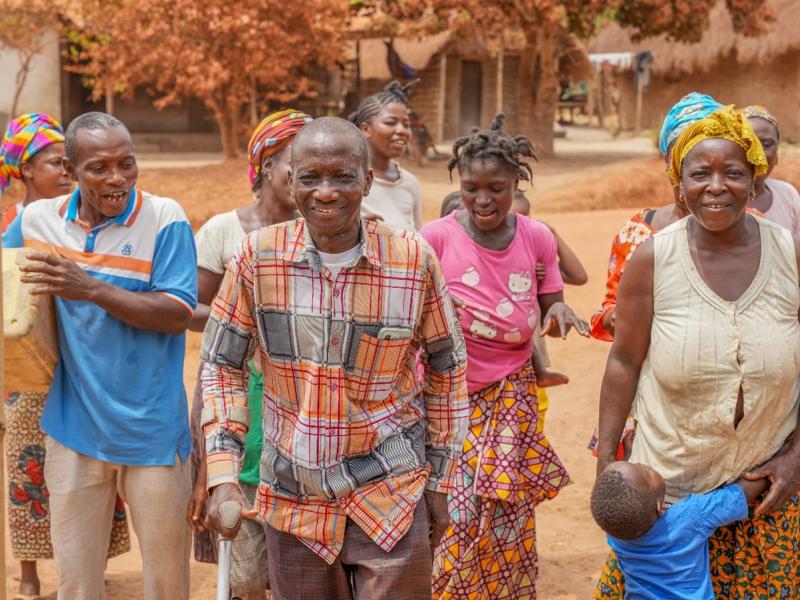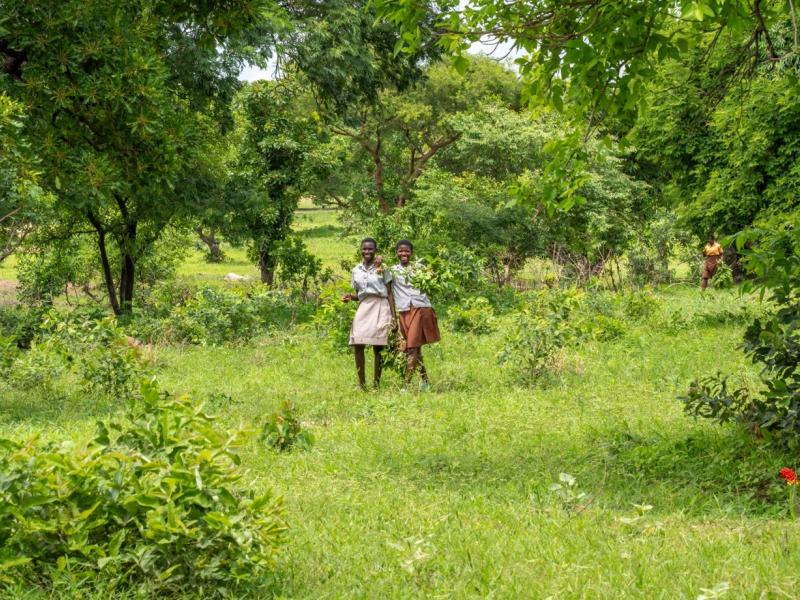Delegates pose for a group photo outside the event venue
The Republic of Congo is home to large parts of the Congo Basin, the world's second-largest tropical rainforest. The country’s forests spans over 23, 419, 764 hectares, representing 69% of national territory - approximately three times the size of Ireland. Republic of Congo’s importance in meeting the climate goals of the Paris Agreement cannot be underestimated. Although the country boasts one of the lowest deforestation rates in the Congo Basin, greenhouse gas emissions from deforestation and degradation represent its largest source of emissions, due to land use changes from agriculture, mining and energy consumption patterns.
To support the country to mitigate this, UN-REDD Programme in partnership with the African Forest Forum (AFF) are supporting the country to align REDD+ - reducing emissions from deforestation and forest degradation to other sectors of the economy including agriculture, mining and energy.
This support included a national policy dialogue held in Kintele, North-East of the Congo Capital, Brazzaville on 3-6 December 2024 . In attendance were 30 policy stakeholders drawn from various sectors including agriculture, energy, water, biodiversity, finance, livestock, mining and wildlife.
Opening the dialogue, Administrative Concilor to the Minister "Economie Forestiere", Mr GUY SATURNIN TSETSA reiterated the importance of REDD+ implementation, which will see the country benefit from improved forest cover and access to clean water supplies, among other environmental benefits.
The dialogue also emphasized the importance of fostering close collaboration among various stakeholders to effectively address deforestation and unsustainable land use practices. It highlighted the need to promote sustainable development and safeguard natural resources.
Other issues discussed by delegates included the need to make sectoral policies transparent, especially aligning them for effective delivery of environmental services.
Republic of Congo has also been selected in the pipeline of the Carbon Fund, through which the Forest Carbon Partnership Facility (FCPF) will pilot incentive payments for REDD+ policies and measures. An advanced draft Emission Reduction Program Document (ERPD) covering Sangha and Likouala provinces has been submitted.
Congo is also a member of the Central Africa Forest Initiative (CAFI), a key platform of coordination that provides finance for policy reforms and field investments at scale in support of national investment frameworks for REDD+ and low carbon development.
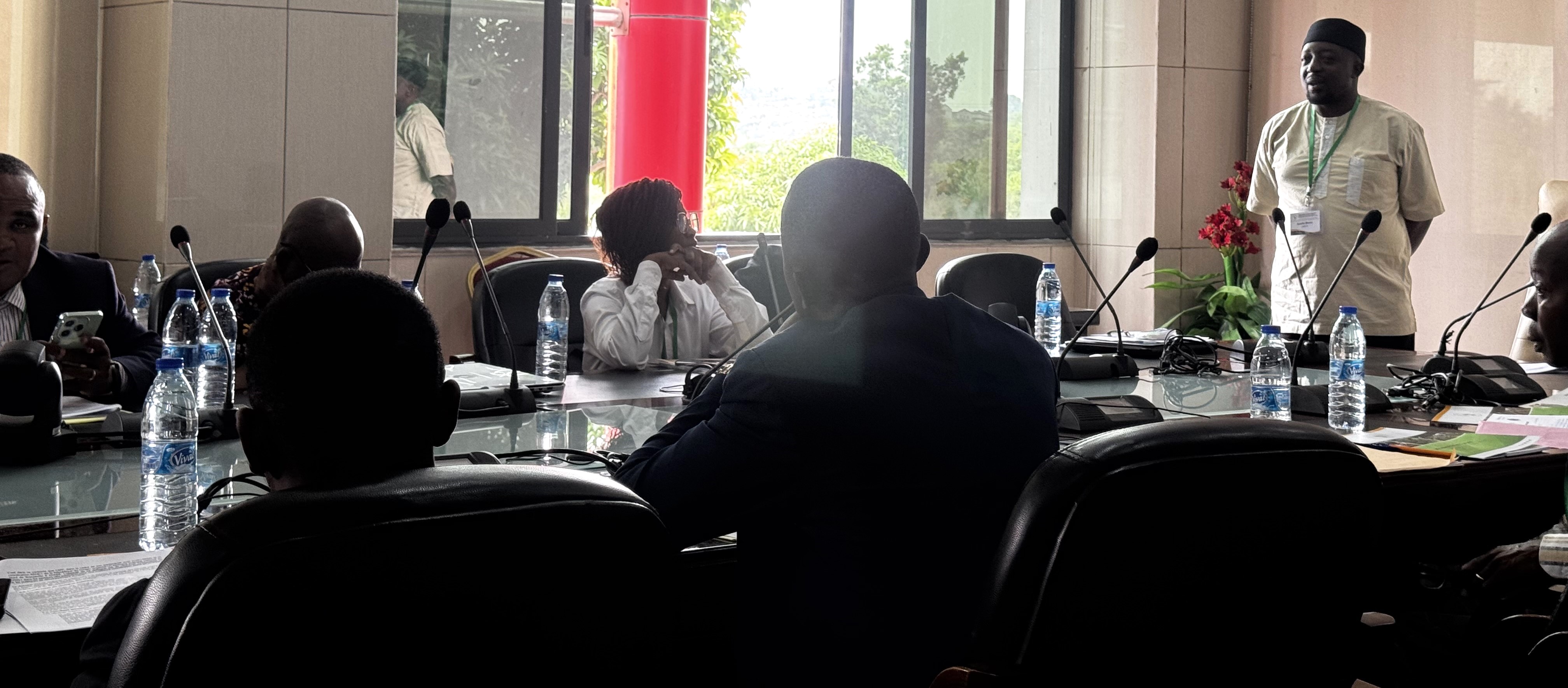
UN-REDD-AFF Project Coordinator Achille Momo addressing the delegates
In addition, Republic of Congo has a new Forest Code that includes provisions to involve local communities and Indigenous Peoples in forest governance; grant forest management rights to forest-dependent communities; recognize civil society's role in forest monitoring; and support REDD+ projects to reduce emissions from deforestation.
Key outcomes of the dialogue included:
-
Key policy actors in Republic of Congo were sensitized on sectoral policies and strategies that have potential to influence REDD+ implementation at national level.
-
For REDD+ success, it will be crucial for sectoral policies and strategies with potential impact on Agriculture, Forestry and other Land Use (AFOLU) sectors to be better coordinated to ensure that forest conservation and carbon sequestration goals are not undermined by sectoral expansion objectives.
-
Increasing awareness of REDD+ benefits across sectors, as well as capacity building is required.
-
Educating policymakers and stakeholders on the value of forests for carbon sequestration can foster support for forest conservation initiatives.
-
Policy actors in Republic of Congo were better enlightened on existing opportunities for mainstreaming and integrating REDD+ activities across relevant sectoral policies to contribute to the country’s sustainable development.
-
Policy stakeholders in Republic of Congo were better informed and understood potential disincentives/constraints at policy and institutional levels, that could negatively affect REDD+ process.
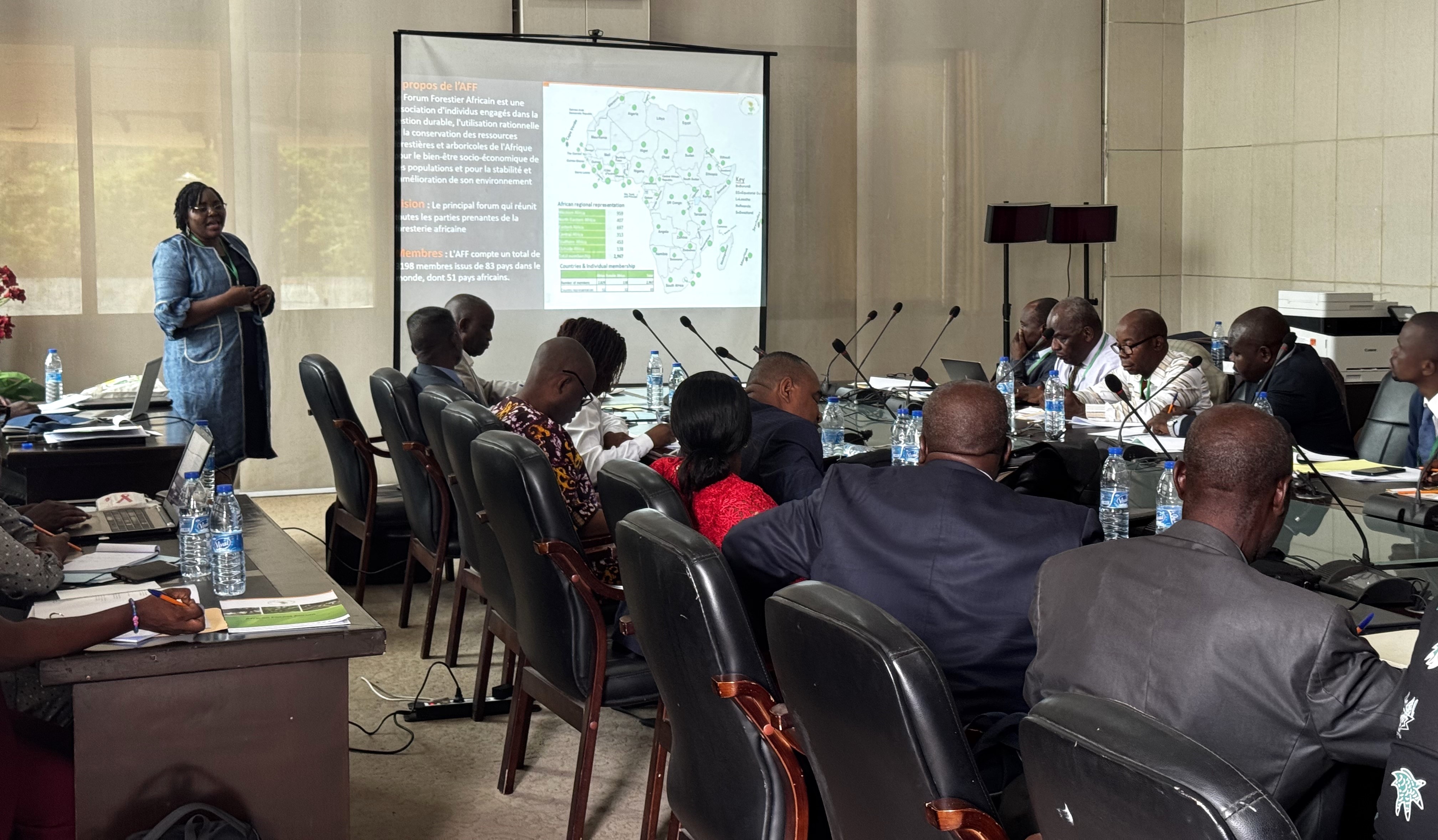
AFF Senior Programme Officer Prof. Marie Louise Avana making a presentation during the policy dialogue
Speaking during the closing ceremony, AFF Senior Programme Officer Prof. Marie Louise Avana urged policymakers to embrace the outcomes of the dialogue to enable the country to benefit from cross-sectoral collaboration in the near future.
REDD+ implementation in Republic of Congo is coordinated by the Ministry of Forest Economy. It will work with other ministries, departments, and agencies as well as civil society organizations, non-governmental organizations, and the private sector to ensure that national policies are complementary, and that REDD+ requirements and activities are integrated into all relevant policies.
As a way forward, a roadmap was developed at the event, with roles, responsibilities, and a timeline for each REDD+ stakeholder for achieving the REDD+ coordination and integration, building on agreed recommendations for harnessing identified opportunities and addressing the constraints.
